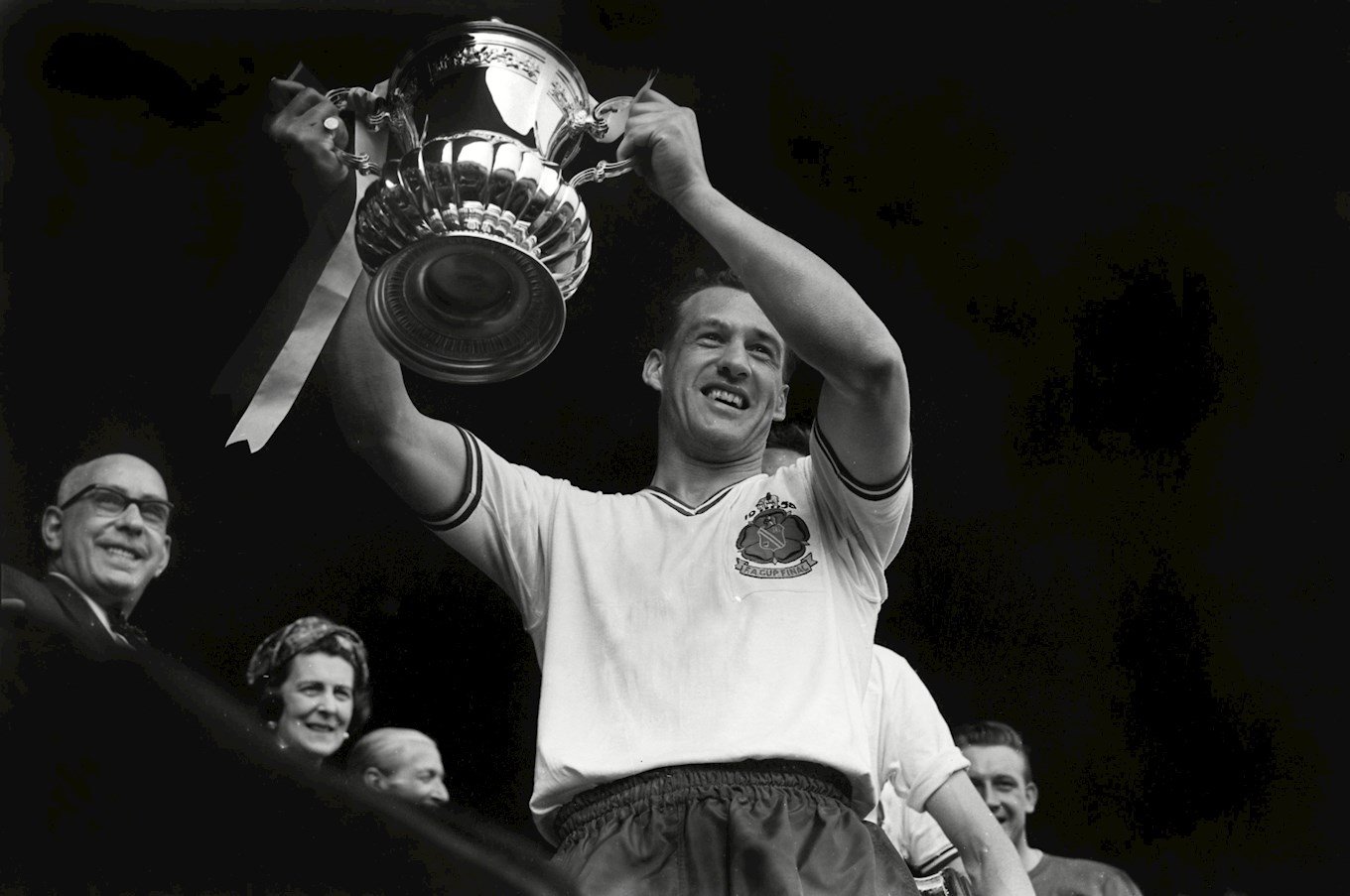Ten years ago today Bolton Wanderers lost the club’s favourite son. Nat Lofthouse was much more than a footballer; he embodied everything that the team and the town are known for. Relentlessly hard-working, tough and yet rarely without a broad smile on his face, he meant more to the people of Bolton and fans of the club than he himself would have ever admitted.
Born in 1925, in the midst of the club's most successful era, like so many youngsters of the time Nat was powerless to resist the lure of the mighty white-shirted Bolton Wanderers, growing up barely a mile from the imposing edifice of Burnden Park. From the very beginning, fate seemed to tie Nat to the club; the very first game he attended, an FA Cup tie against Manchester City, was and remains Bolton's highest ever home attendance - though it ought to be noted that the young Lofthouse isn't included in the official figure of 69,912, as he clambered up a drain pipe in order to gain admittance. Clandestine entrance aside, it was the beginning of a 78-year love affair with the club, and it was extremely appropriate that the man who would come to share such an affinity with Wanderers and their fans got his first taste when surrounded by the greatest number of Boltonians that Burnden Park would ever know.
That could have been the sum of Lofthouse's experience with Wanderers. After a prodigious schoolboy career, Nat was offered an apprenticeship with the club, only to sign his forms the day after Britain had declared war on Hitler's Germany. With football in limbo, Nat could have been forgiven for thinking his chance at fulfilling his dream had come and gone, until a day in 1941 when he received a phone call from the club's accomplished veteran manager Charles Foweraker saying he needed the 15-year-old Nat for the next match, a derby with Bury. Nat scored twice, and an historic career had begun.
From then on, from the end of World War II to the abolition of the maximum wage and the beginning of a new footballing era in 1961, Nat was synonymous with Bolton Wanderers in what proved one of their most illustrious periods. In that time, the club grew from First Division also-rans into a genuine force, finishing in the top eight on six occasions and recording famous victories that ensured Trotters fans held Lancastrian bragging rights for much of the 1950s, including a 5-1 rout of Manchester United at Old Trafford. It was in the FA Cup, however, that Bolton achieved their finest moments. Nat became just the ninth player to score in every single round in 1953, only to be thwarted by Stanley Matthews and Blackpool in perhaps the greatest Final of all time. Five years later, Wanderers got their reward, with a 2-0 win over United bringing them the club's last major piece of silverware to date. The era saw Burnden Park play host to many heroes; the superb shot-stopper Eddie Hopkinsom, the swashbuckling Willie Moir, the tenacious Dennis Stevens, the fearsome full-back duo of Tommy Banks and Roy Hartle, among many others, but at the heart of it all was always Nat, harrying defenders, charging down lost causes, and hammering the ball into the net. Over the course of his first class career, Lofty would score 255 goals in the league, 27 in the FA Cup (including three in Finals), three in the League Cup, and three in the Charity Shield, as well as 98 in the War League during the Second World War.
Nat’s love of Bolton meant he would have been content to see out his playing days having never featured for a team, but it wasn’t long into his career before he was attracting national attention. What followed was an illustrious international career with England, from whom he scored a remarkable 30 times in just 33 games (leaving him as the Three Lions’ record goal-scorer). The high watermark of his international career was unquestionably in 1952, when he scored twice in a famous win over an intimidating Austria team, a performance that earned him the sobriquet ‘The Lion of Vienna’.
His post-playing career was no less illustrious. He held almost every conceivable position at Bolton - coach, manager, head scout, executive manager and more - before eventually being named club president, a role he took immense pride in and held until his death at the age of 85. Along the way, he was instrumental in the promotion of the Lifeline initiative that saved the club from financial oblivion in the 1980s.
It has now been ten years since Nat's passing, yet the cold winter's day that saw thousands turn out to pay their respects to the man remains fresh in the memory. While much has happened in the last decade for Bolton Wanderers and beyond, Nat's presence is keenly felt as much as ever; in the University of Bolton Stadium stand named for him, in the stunning statue unveiled in 2013, and most importantly, in the hearts and minds of thousands of Bolton Wanderers fans.
Matt Clough is the author of Lofty: Nat Lofthouse, England’s Lion of Vienna – a biography of the Bolton Wanderers legend. The book is available in all formats and can be purchased from all book stores.

